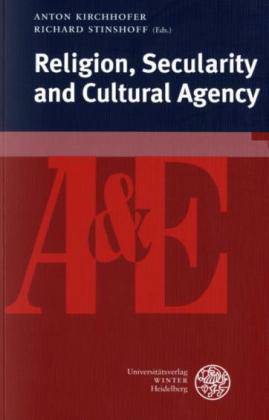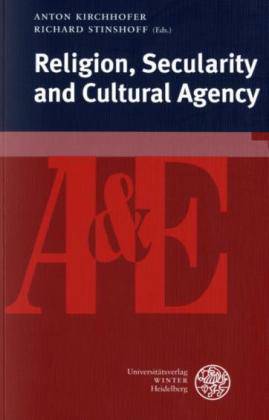
- Afhalen na 1 uur in een winkel met voorraad
- Gratis thuislevering in België vanaf € 30
- Ruim aanbod met 7 miljoen producten
- Afhalen na 1 uur in een winkel met voorraad
- Gratis thuislevering in België vanaf € 30
- Ruim aanbod met 7 miljoen producten
Zoeken
Religion, Secularity and Cultural Agency
€ 19,95
+ 39 punten
Omschrijving
Before the end of the Cold War religion seemed to occupy a well-defined place in the modern world picture. It was associated with tradition and allegedly had lost its relevance in the social and political spheres developing into an optional element in the private lives of modern citizens. Today, however, the classical secularization hypothesis looks much less uncontroversial. Arguably, religion has never lost its relevance to individual and collective cultural agency. Specifically in Britain the religious encoding of cultural conflicts has enjoyed an unbroken tradition going back to the 16th and 17th centuries. The essays in the first section of this volume analyse examples from the 17th to the early 19th centuries showing the intimate connection of religion with the central trajectories of modernisation. The contributions to the second section focus on regional, popular, and elite cultural phenomena revealing deep imprints of the religious in contemporary society. The discussions of the religious in post-war and recent films in the third section suggest that religion has been highly visible as an issue since the middle of the 20th century, and that its presence in this medium has been strongly influenced by ideological as well as economic concerns. Altogether, the essays demonstrate that there has never been a clear-cut division between the religious and the secular. Instead, the fusion of religious and secular motives, encodings and trappings has continued to provide a powerful source of individual and collective social, cultural and political agency.
Specificaties
Betrokkenen
- Uitgeverij:
Inhoud
- Aantal bladzijden:
- 208
- Taal:
- Engels
- Reeks:
- Reeksnummer:
- nr. 74
Eigenschappen
- Productcode (EAN):
- 9783825357078
- Verschijningsdatum:
- 1/01/2010
- Uitvoering:
- Paperback
- Formaat:
- Trade paperback (VS)
- Afmetingen:
- 134 mm x 210 mm
- Gewicht:
- 2508 g

Alleen bij Standaard Boekhandel
+ 39 punten op je klantenkaart van Standaard Boekhandel
Beoordelingen
We publiceren alleen reviews die voldoen aan de voorwaarden voor reviews. Bekijk onze voorwaarden voor reviews.










